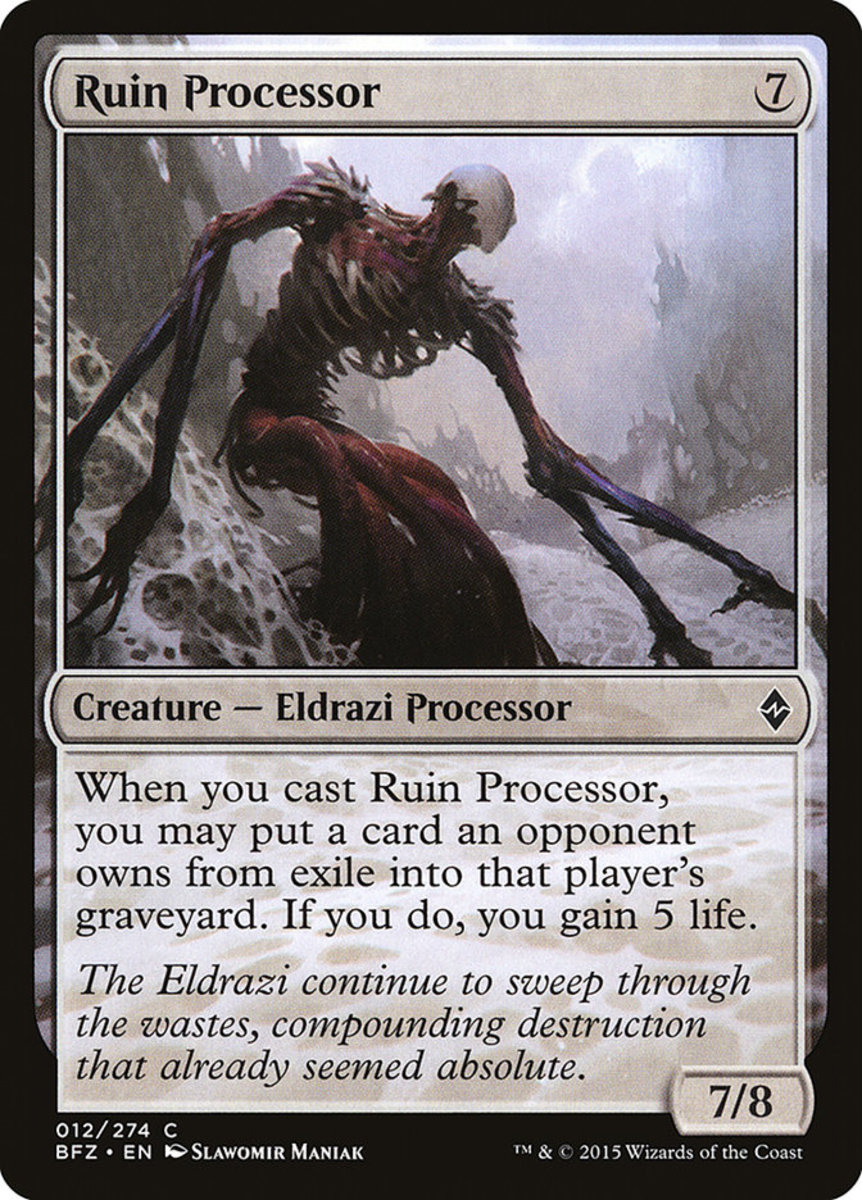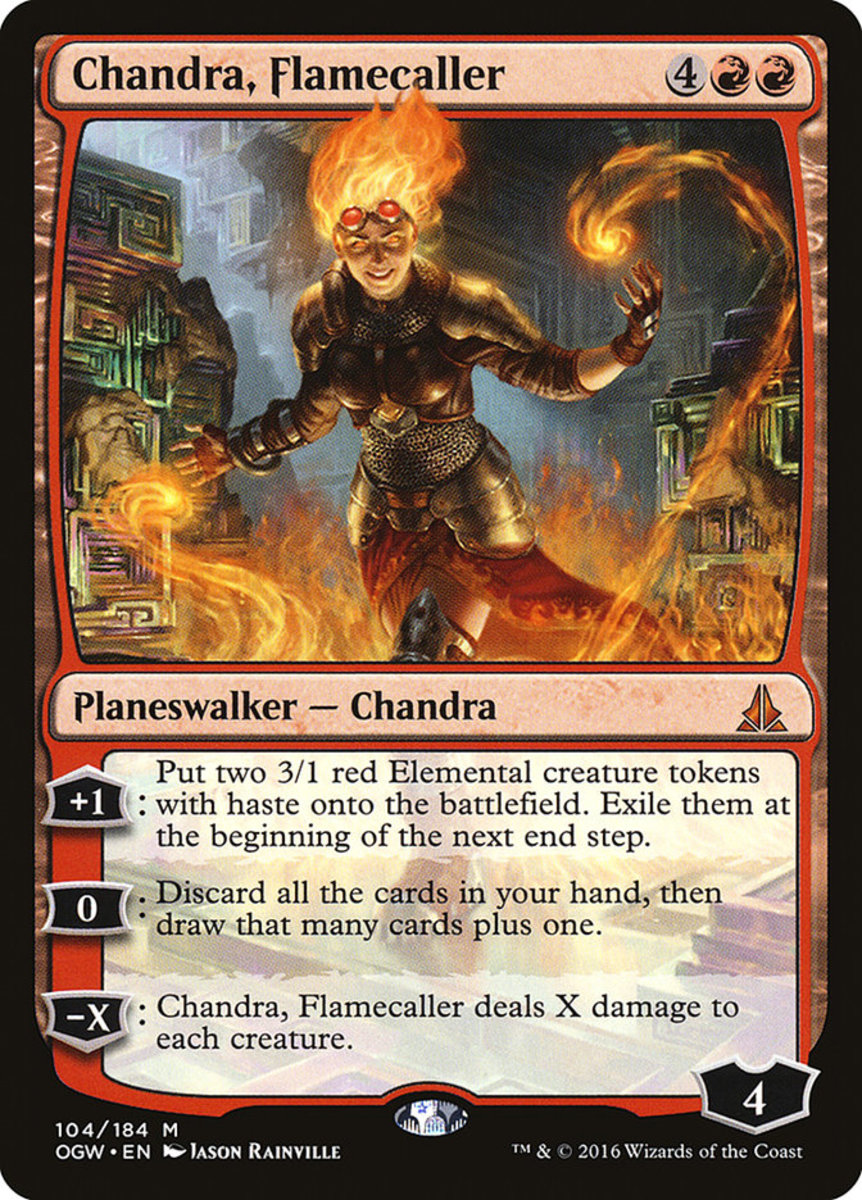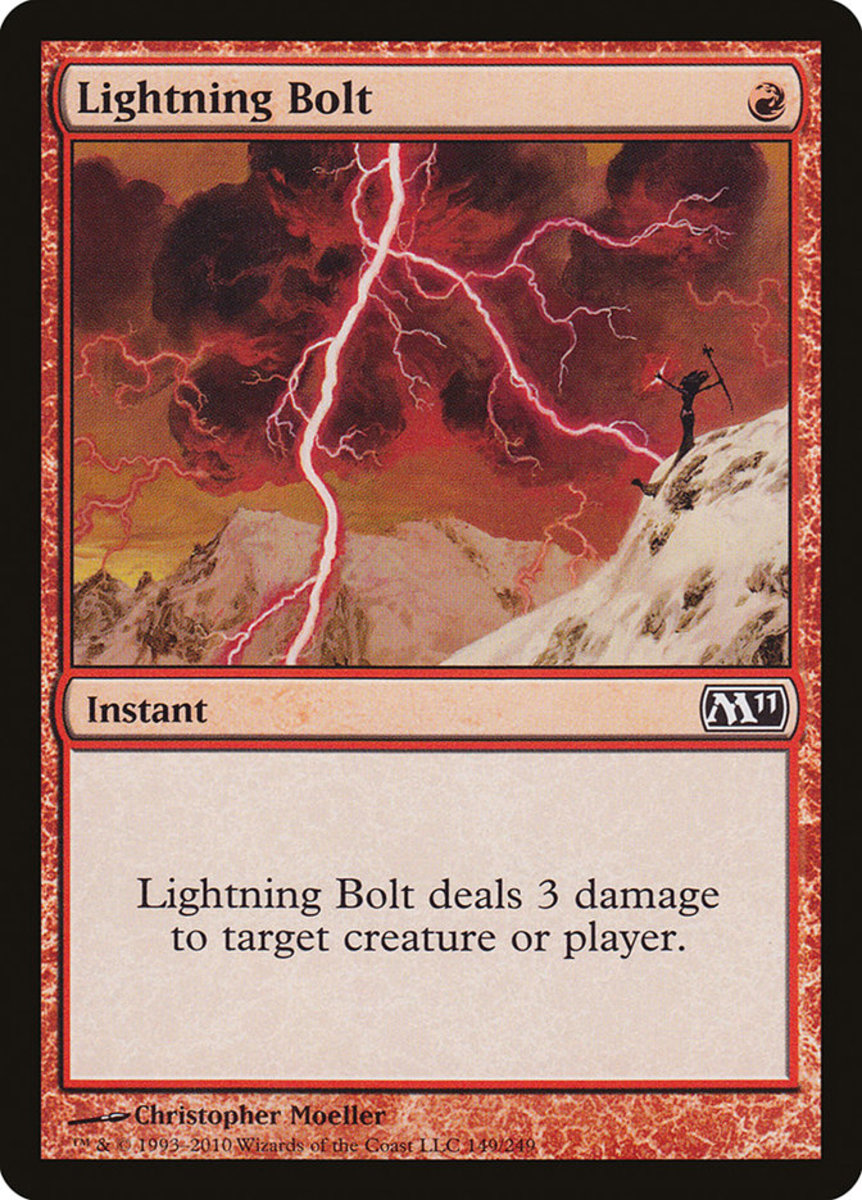- HubPages»
- Games, Toys, and Hobbies»
- Card Games»
- Collectible Card Games
Magic the Gathering, Political Decks pt2

This hub is about a Magic the Gathering deck type. To learn to play click here
Poly Deck- Devil’s Advocate
In a previous column I wrote about a kind of deck that really comes into its own in chaos multiplayer magic. (see my previous article) This is the poly (political) deck, which specifically targets the metagame of multiplayer politics. The original deck I described was manipulated to get people to ignore you. The following deck's power on the board is pretty obvious once you've seen it played and manipulates the metagame completely differently and thus shows aspects of a poly deck not seen in my previous entry.
A key feature of many poly decks is the transformation of mechanics that don’t work in duels. The poly deck by nature takes advantage of the metagame, which leads to interesting possibilities. One great set of completely ignored cards were the Advocate cards of Judgment. Their activation costs were based on giving an opponent cards from the graveyard. The ratio of cards returned vs. the actual ability suck in dueling and the cards will be condemned to magic’s scrap pile, except by me. I noticed that the cards don’t specify which opponent I give the cards to vs. the effect I’m using. So if an advocate’s ability goes off, I can target one player and give a different opponent cards. Combined with some sort of milling, you have the opportunity to give any opponent the best card in their graveyard. Now that’s power.
The key factor in this deck is to understand graveyard = power. The more cards in graveyards, the more you can run the deck’s engine, and the more powerful you become. This is the case regardless of whether any particular graveyard card is useful. Your power lies in your ability to give the right cards to the right opponents, and sometimes it’s nice to have a player with four swamps in their graveyard. But this deck gets even more counterintuitive than traditional deck strategy because your deck gains power the more people are at the table. The bigger the graveyards, and the more players that have graveyards, the more power. So you want to keep people alive by giving them good cards from their graveyards only to turn around and eventually mill their deck. (This is why it is a devil’s advocate deck, because you’re always trying, like a devil’s advocate, to keep weak players alive)
But enough talk on theory. I present you with the five advocates.( If you’re unfamiliar with any of the other cards check out gatherer.wizards.com)
Nullmage, 2G tap, return two cards in an opponent’s graveyard to his or her hand: destroy target artifact or enchantment. (2/3 insect druid)
Pulsemage: 2W tap, return three cards in an opponent’s graveyard to his or her hand: return target creature from your graveyard to play (1/3 cleric)
Spurnmage: W, tap, return two cards in an opponent’s graveyard: destroy target attacking creature. (1/1 Nomad)
Forcemage: 1G tap, return target card in an opponent’s graveyard: put a +1/+1 counter on Forcemage Advocate. (2/1 Centaur)
Shieldmage: 2W: tap, return a target card in an opponent’s graveyard that would be dealt to a creature or player by a source of your choice.
Here’s a break down of how all the advocates contribute:
Pulsemage is best used to sit in your hand to recover from Wrath of God, unless you throw in some bad ass creatures to reanimate. The truth is, though far from being removal proof, the advocate engine only requires one creature to start threatening people with opponent’s cards. Board sweeping is considerly more damaging. Having a Spurnmage out stops people from attacking, so make sure you can handle opponent’s wrath. Forcemage: is something of your workhorse. All the other advocates work on a condition (preventing damage, attacking creatures, etc.) but the Forcemage: can just get big on its own. In time you might have a 5/4 or 6/5 creature on your hands. Shieldmage: can obviously stop combat damage but direct damage as well.
Devil’s Advocate, my build (Check Gatherer for unfamiliar cards.)
Green Creatures White Spells Artifacts
2 Nullmage Advocate 2 Oblivion Ring 4 Millstone
3 Forcemage Advocate 2 Faith’s Fetters
2 Holy Day Lands
Green Spells 4 Bant Panorama
White Creatures Respite 6 Plains
3 Pulsemage Advocate 6 Islands
3 Shieldmage Advocate Gold Spells 3 Forests
3 Spurnmage Advocate Congregation at Dawn 3 Selesnya Sanctuary
2 Vitu-Ghazi, the City-Tree
Blue Creatures
4 Vedalken Entrancer
3 Belltower Sphinx
How the deck works in practice
First, it might be difficult to explain that milling is beneficial, in the short term, for any player. Sometimes you mill a win condition. But once you’ve settled that you can give people their cards back, you should be able to follow standard operating procedure, which is milling and returning cards. With my build the milling is so weak that it’s damn near impossible to win, but in my eyes, as long as I’m a player with a deck to be reckoned with I don’t care. For winning games Jace is the most obvious addition but since Wizards of the Coast decided to make milling a regular win condition for blue, some other cards can up your milling power (Traumatize, Memory Erosion, Hedron Crab, etc.) Still, I wouldn’t put up much hope for actually winning. What this deck does is dramatically increase the time it takes to play a game. Because you want maximum graveyards, it’s often in your best interest to keep the weakest player alive. You’d also like to make friends with the heavy removal/counter decks. They often have answers to threats you face, and they’re not below stopping an opponent if you just promise to give said response straight back. This deck cannot sustain a direct attack for long, but the threat of building up other players (with said removal) is usually sufficient to keep attackers at bay. This deck can be great fun to play, because of the guessing game you get to play (what card do I give to whom?) and leads to interesting games. And as is the case with most poly decks, don’t play this deck too often. This deck can be the most dangerous deck on the board, even if it has no chance of winning, and players eventually pick up on that. They also start to catch on to the fact that if the rest of the table shows solidarity towards killing you then bribing your opponents is a useless gesture. There’s a reason people dislike lawyers, let me tell you.



